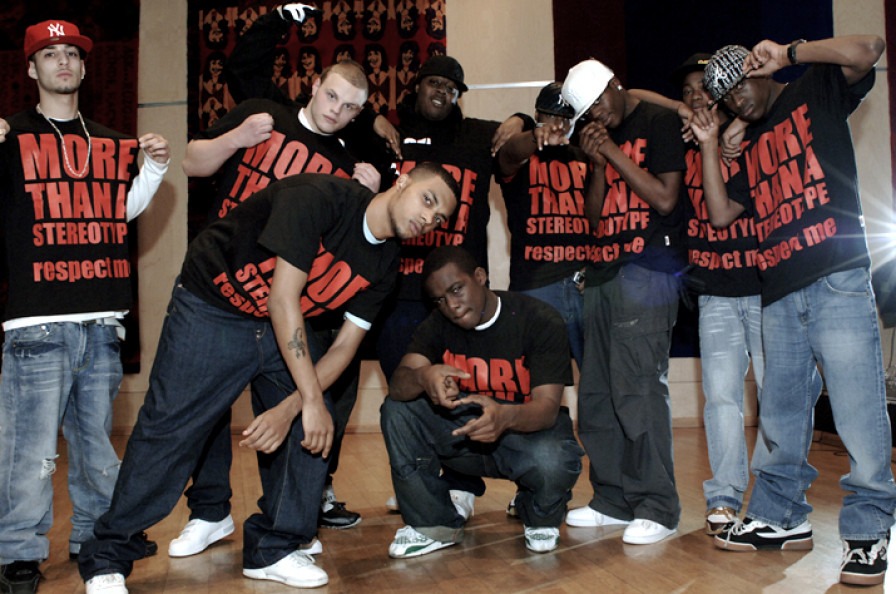The 'Young Leader'

Can the ‘young leader’ only be developed in a formal and structured way?
Some of us recognise this term as referring to a young person who is (or has) taken part in a project or programme offering and encouraging leadership situations and opportunities.
Such leadership programmes occur in all sectors including music education and are fantastic ways of engaging with young people and providing them with a range of experiences, skills, tools and thinking.
However, it is important to take a step back and think, can the ‘young leader’ only be developed in a formal and structured way? We think not!
Young people, whether they are aware of it or not, take leadership roles everyday. Think of the young person on the playground initiating a game of football or a young drummer leading their youth centre or school rock band. Young people often take leadership roles in their own family lives and communities too, or with their friends and peers.
Young Leaders don’t have to born from a formalised setting; most young people lead everyday without realising it. It is good to know, to recognize, that being a leader is something that every young person is capable of and many will demonstrate everyday.
There are some excellent examples of organisations and projects that recognize the natural leadership ability of young people and who have harnessed it to develop leadership programmes.
One of those initiatives is Sing Up. Sing Up has and continues to encourage ‘Young Singing Leaders’ in many projects and believe that encouraging young people to use their singing skills to help others, their peers or young children is a good thing with many benefits.
soundLINCS, the Lincoln-based community music education charity, developed a Young Singing Leader (YSL) strand within ‘Sing 66’. Sing66 was an ambitious countywide Transitions Programme that enabled YSL from secondary schools to work with children from local feeder primary schools through leading singing workshops. They were also crucial in supporting large scale rehearsals and a massive performance on National Sing Up Day 2011. Please take a moment to watch this video: http://www.youtube.com/watch?v=UXu7rRwMa0M to see and hear the young singing leaders in action!
The Sing Up website provides a great many tools and information that supports young singing leaders and those working with them. Visit the Sing Up website to find out more; http://www.singup.org/teaching-tools-advice/
Youth Music have recently evaluated a three year project ‘Music Passport’, which explored how an interaction between young music leaders and younger children / peers can support their musical, personal, social and educational development, including transfer from Primary to Secondary school, both in and through music.
The evaluation of this project is available on Youth Music Network site - http://network.youthmusic.org.uk/sites/default/files/research/Music%20Passport%20final%20report%20Dec%202011.pdf and is worth a read. This is another example of how leadership in musical settings can be encouraged and embraced.
Follow this link on the Youth Music Network site and see some of the young leaders who took part in the ‘Music Passport’ project undertaking some mentor training – an important part as their role as ‘young leaders’: http://network.youthmusic.org.uk/resources/media/music-passport-mentor-training
Supporting the thinking that young people becoming leaders and taking a leadership role as a good and positive thing is the recent government policy ‘Positive For Youth’ published by Department of Education.
Positive For Youth aims to improve services that affect young people and encourages their participation in this improvement. Positive For Youth is built around the belief that every young person can make a contribution to today’s society and aims to allow them to do so. And ‘acknowledges the positive things that young people do’.
Positive For Youth encourages young people to lead on improvement in all sorts of services including health, education and transport to name a few. Find out more about this policy and how it was and continues to be shaped; http://www.education.gov.uk/childrenandyoungpeople/youngpeople/Positive%20for%20Youth/
Taking a step back from this national thinking and looking at how music leaders in workshop settings encourage leadership is important too. Music leaders will always wish to encourage every young person in their group and to make the most of opportunities that enable those who want to, to shine and lead their peers. This maybe in leading a song or supporting a friend in the group. This is a really natural way to encourage leadership in young people in a more informal setting, but in no way any less important.
So, it is great that there is some national thinking and movement in encouraging young people to have a voice and a chance to participate, but it is also encouraging to know that young people can and do lead in different ways everyday. Most of the time they don’t even know they are doing it.
We all have a responsibility to recognise this in the young people we talk to and to help them to make the most of it in every context, especially music.
So – over to you! Have you got examples of Youth Leadership to share, or know of resources that we can all benefit from?
Useful Websites:
Young Foundation: http://www.youngfoundation.org/
National Youth Agency: http://www.nya.org.uk/
Interesting Reading:
Taking the Lead – Youth Leadership in Theory and Practice Report – 2009 / Young Foundation: http://www.youngfoundation.org/files/images/takingthelead.pdf
